Summer vacation changed completely after I joined the volleyball club. No longer about travel or side projects, it became about discipline, endurance, and community. Training camp is where that shift became real for me: four days of routines, sweat, laughter, nerves, and fireworks. Over three summers, I experienced how these camps shaped not just my game but also my outlook on language, culture, and life itself.
The Routine
Intense. That’s the first word that comes to mind when I think of training camp. Wake up at six. Go for a run. Breakfast. Morning training. Lunch. Break. Afternoon training. Dinner. Evening training. Meeting. Sleep. Repeat for four days straight.
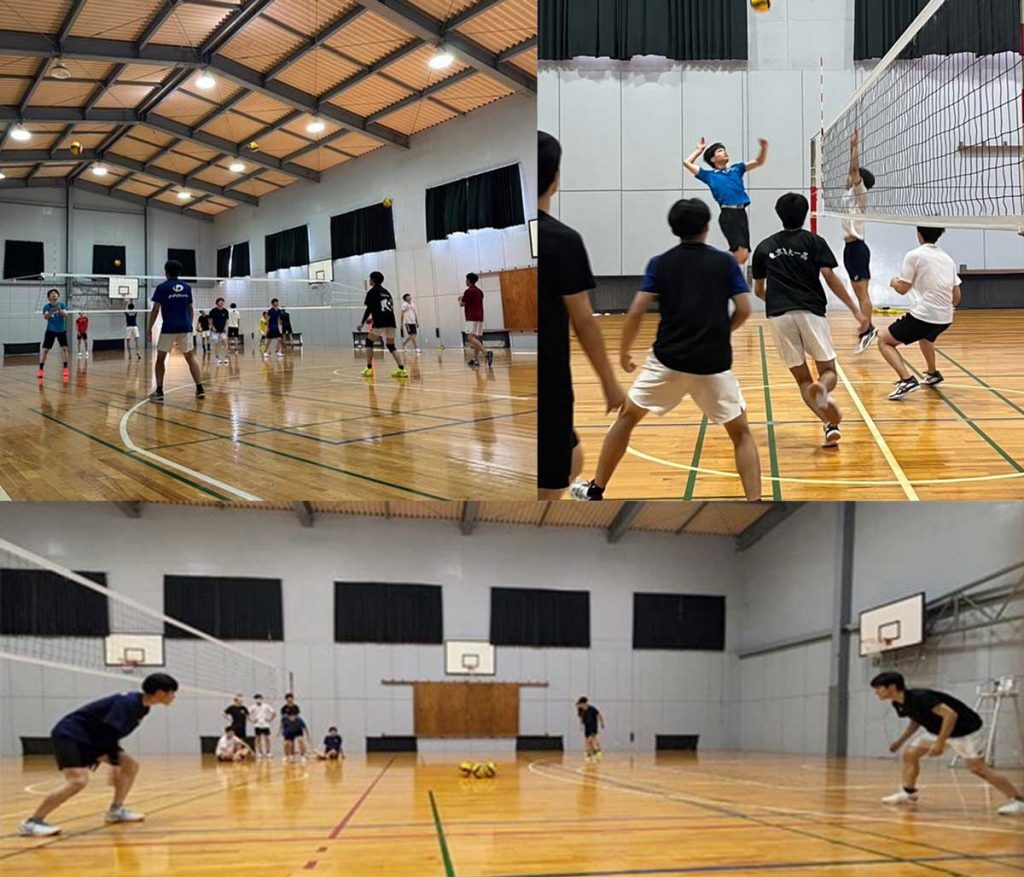
In my first year, I remember the captain posting the training schedule in the group chat. But I couldn’t read Japanese handwriting then — sometimes not even computer text. That meant I went in with no idea what was coming. My “common sense” told me that nights would be for rest. Wrong. After dinner and a short break, we were back in the gym for evening practice, then showers, then the end-of-day meeting, and then, finally, sleep.
By the second day, my body always felt like an old machine. Still, when everyone else was already moving — washing faces, stretching, assembling outside — I followed. That’s how the routine carried me forward.
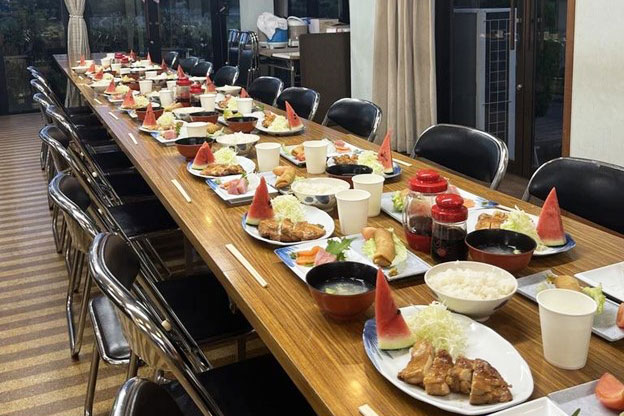
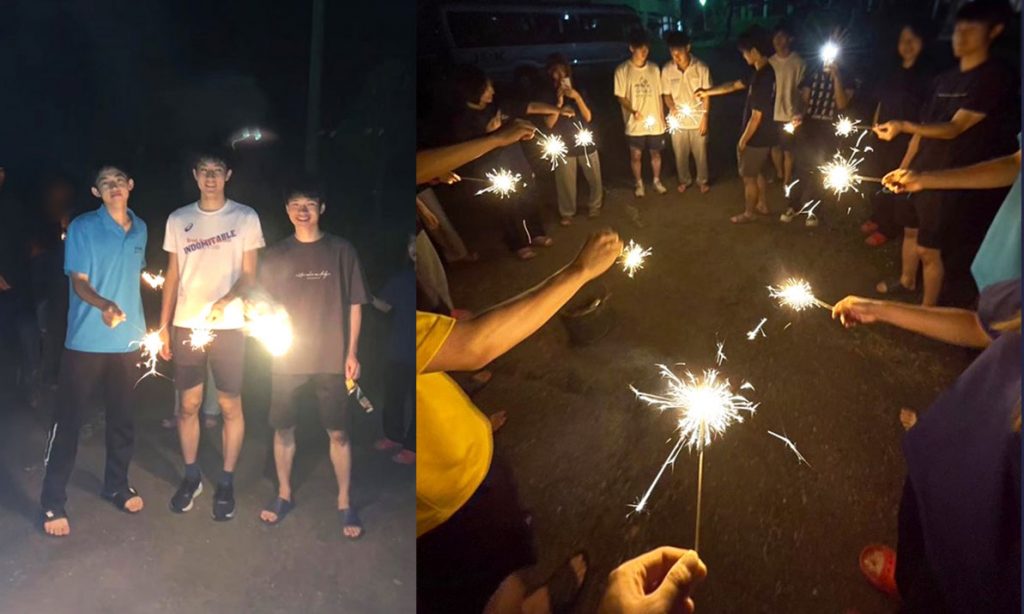
The Meetings
The hardest part wasn’t the running or the endless drills; it was the meetings. At the end of each day, everyone sat in a circle and spoke about what they did well, what they didn’t, and what they would work on tomorrow.
For me, this was dreadful. I was the only foreigner, my Japanese was shaky, and I wasn’t the strongest player. The captain usually spoke first, then nominated the next person, so I always ended up last or second-to-last among around 15 people. By then, my heart was pounding. Speaking in a second language means your brain is split — while thinking of what to say, you barely hear what others say.
Yet those moments shaped me. I mimicked grammar structures, tried to talk in my own style but with their rhythm. I aimed to sound Japanese, but always landed somewhere else — a mix of my thoughts in a new language. That in-between space became exciting. It taught me that communication is less about perfection and more about showing up.
The Struggle and the Laughter
Not everything was hardship. Far from it. There were fireworks, late-night “deep talks,” and the kind of silly mischief that only happens when you’re tired but still together. Roommates snored loudly, only to be teased the next day. Even morning runs — which everyone hated — turned funny when we all prayed for rain to cancel them.
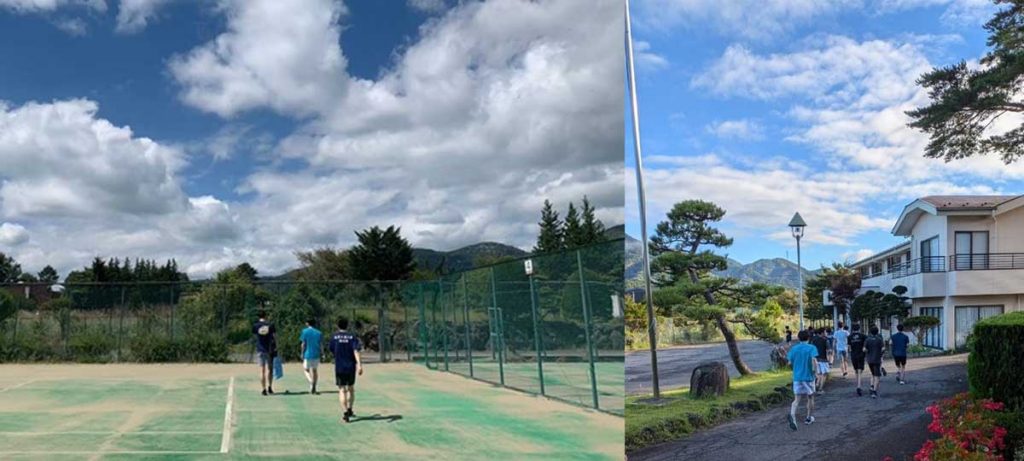
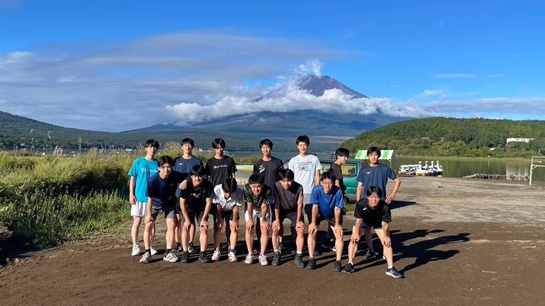
Breaks brought their own memories. Watching sumo tournaments on TV together, or the time a senpai bought me my first cup ramen at the convenience store because I had no clue which one to pick. That ramen was amazing, but even more unforgettable was the kindness behind it.
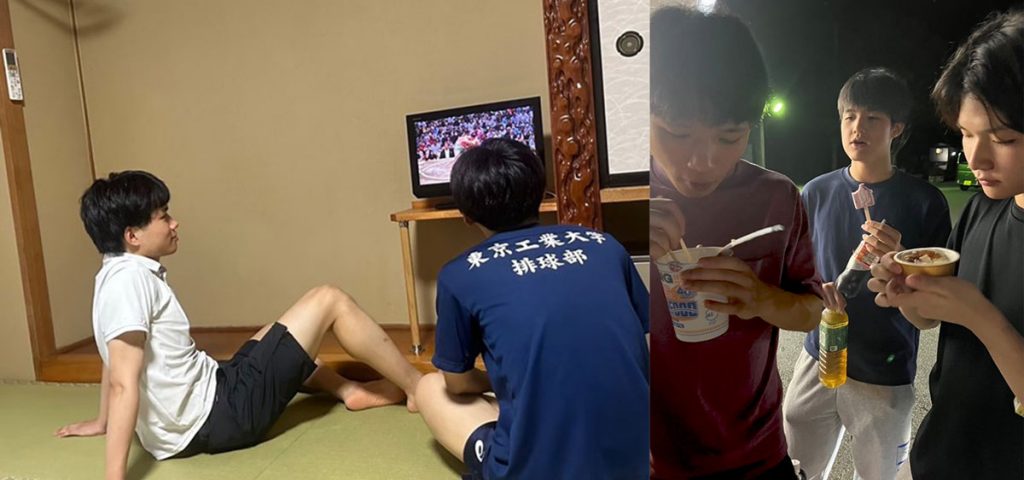
What I Learned
We pushed until we literally couldn’t stand anymore. Unreasonable? Maybe. But in hindsight, that endurance shaped how I approach not only sports but also research, work, and relationships.
You can still do cutting-edge research at 40, but you can’t spend hours jumping on a volleyball court day after day. That window of experience is limited. And I’m glad I seized it.
One of my professors once shared with me his own memory from being in the volleyball club. He said, “During summer training and camps, for example, we did unreasonable extra training until we literally couldn’t stand anymore. But whether it’s research, work, or being kind to others, in the end, it’s all a matter of endurance. Looking back now, I’m really glad I had the experience of pushing my physical and mental limits in my university days.” His words resonated deeply with me, because they connected what I was feeling at camp with the broader lessons of life.
Looking Back
Three summers. Three training camps. Each one tested me physically, mentally, and emotionally. Summer training camp is probably what I’ll miss most about my college days. Living side by side with teammates, sharing the same routines, struggles, and laughs — it created bonds that go beyond volleyball.
